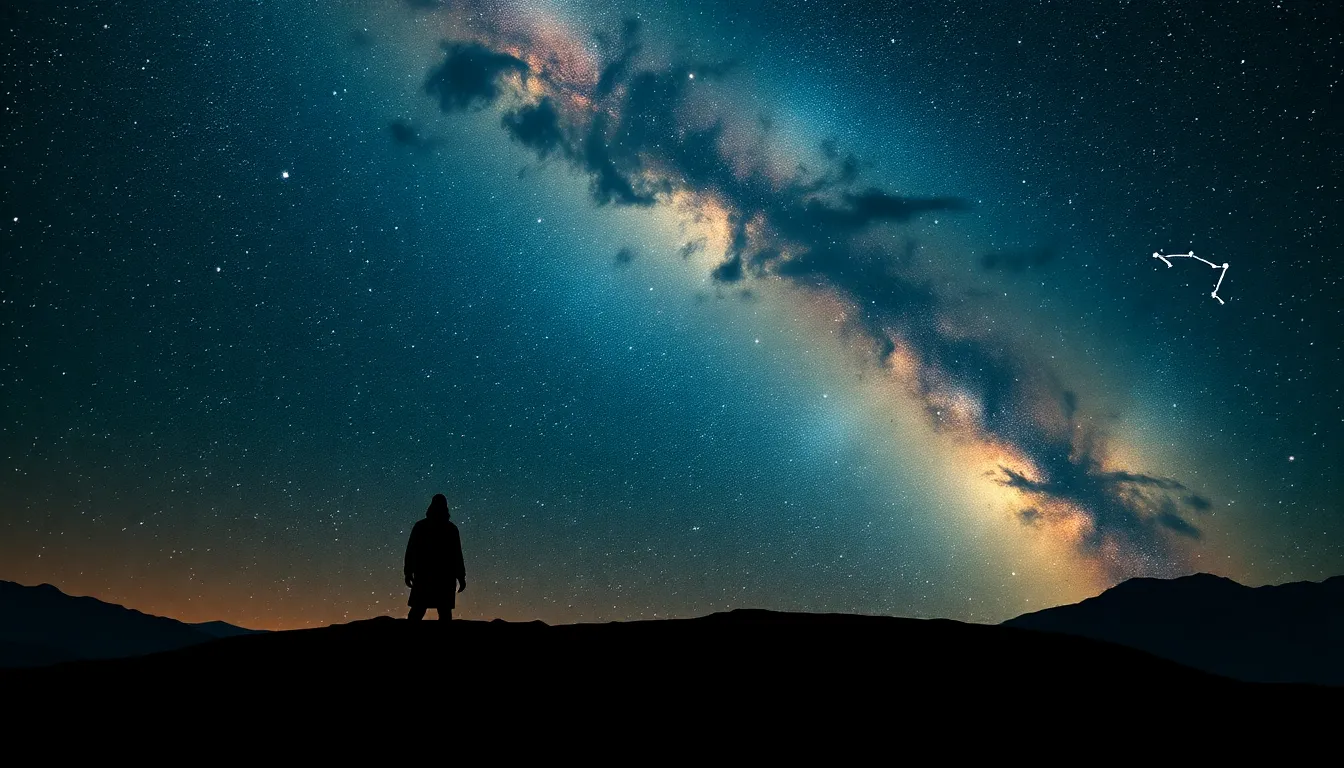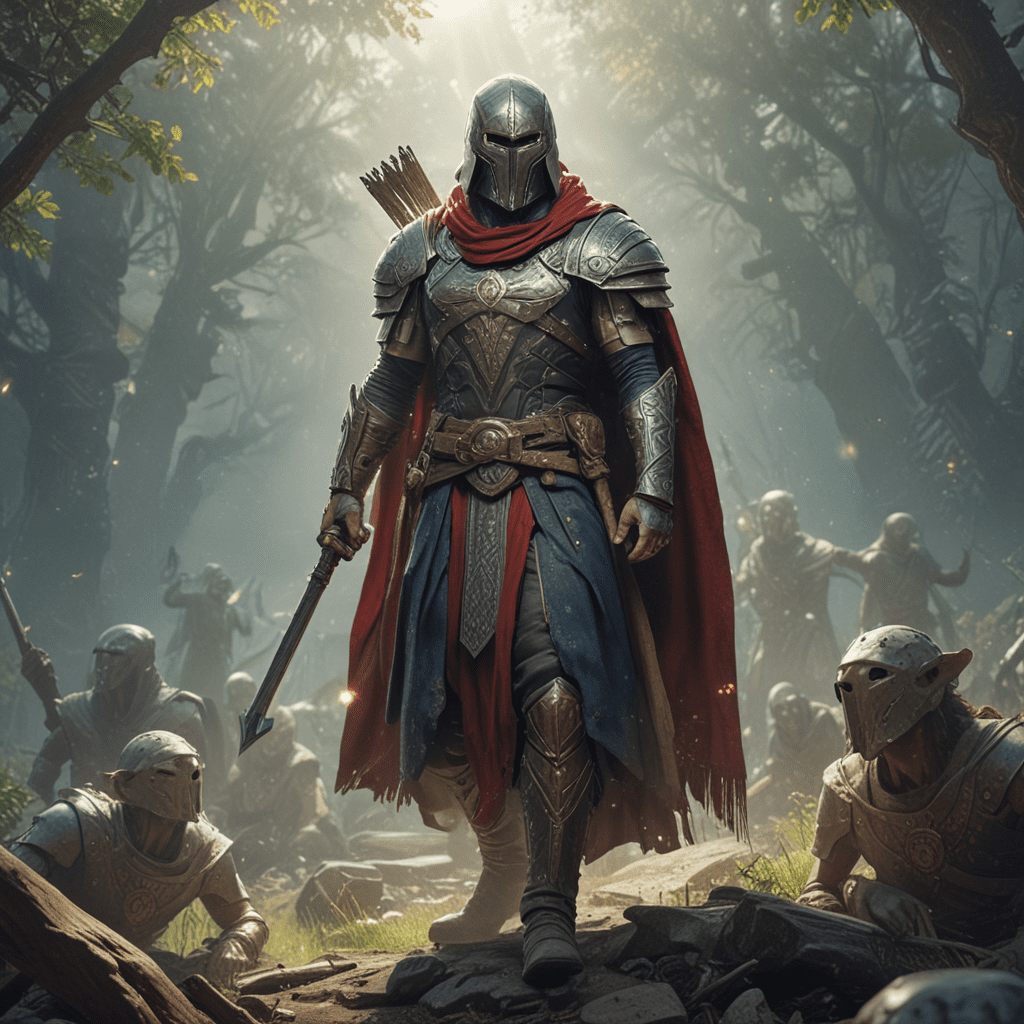Bloodshed in the Arena: The Most Intense Mythological Battles
I. Introduction
Mythological battles are dramatic confrontations between gods, heroes, and mythical creatures that feature prominently in ancient stories and cultural narratives. These epic clashes not only entertain but also reflect the values and beliefs of the societies that created them. They serve as a lens through which we can examine the human condition, morality, and the struggle between good and evil.
This article delves into some of the most intense mythological battles across various cultures, exploring their significance and the themes they embody. From the epic Titanomachy to the apocalyptic Ragnarok, these narratives reveal much about the civilizations that crafted them and continue to influence modern storytelling.
II. The Origins of Mythological Battles
Mythological battles have their roots in ancient history, often arising from the need to explain natural phenomena, human emotions, and existential questions. These conflicts are rich with cultural significance, serving as allegories for real-life struggles and moral dilemmas.
- Historical Context: Many battles are set against a backdrop of historical events, reflecting the values and beliefs of the cultures that created them.
- Thematic Elements: Common themes include the clash between order and chaos, the struggle for power, and the eternal battle between good and evil.
- Modern Influence: The archetypes and narratives from these mythological battles have permeated modern literature, film, and art, shaping contemporary storytelling.
III. The Titans vs. Olympians: A Clash of Generations
The Titanomachy, the battle between the Titans and the Olympian gods, represents a pivotal moment in Greek mythology. This epic confrontation illustrates the struggle for dominance and the establishment of a new order.
Key figures in this battle include:
- Cronus: The leader of the Titans, who feared being overthrown by his offspring.
- Zeus: The youngest son of Cronus, who leads the Olympians in their rebellion.
- Allies: Other gods and goddesses who sided with Zeus, including Poseidon and Hades.
The consequences of this battle were monumental, as it established Zeus as the supreme deity and marked the beginning of the age of the Olympians, reshaping the divine hierarchy forever.
IV. The Trojan War: Myths and Realities
The Trojan War, immortalized in works like Homer’s “Iliad,” is a blend of historical events and mythological embellishments. It highlights the complex interplay between human actions and divine interventions.
Key battles and characters in this legendary conflict include:
- Achilles: The greatest warrior of the Greeks, whose rage and quest for glory drive much of the narrative.
- Hector: The noble Trojan prince, representing honor and duty.
- Divine Interventions: Gods and goddesses such as Athena and Apollo actively participate in the battles, swaying the fates of the heroes.
The Trojan War’s legacy endures in literature and culture, serving as a cautionary tale about the futility of war and the tragic consequences of pride.
V. Norse Mythology: Ragnarok and the End of Days
Ragnarok, the prophesied apocalypse in Norse mythology, is a cataclysmic battle that signifies the end of the world and the rebirth of a new one. This event is marked by intense conflict and the ultimate showdown between gods and giants.
Major players in Ragnarok include:
- Odin: The Allfather, who leads the gods into battle.
- Thor: The thunder god, known for wielding his hammer, Mjölnir.
- Loki: The trickster god, whose betrayal contributes to the chaos.
- Giants: The formidable foes representing chaos and destruction.
The symbolism of destruction and rebirth in Ragnarok reflects the cyclical nature of life and death, emphasizing the belief in renewal after devastation.
VI. The Epic of Gilgamesh: Battles Against Divine Beings
The Epic of Gilgamesh, one of the oldest known literary works, features its hero engaging in battles against divine beings and mythical creatures. This epic explores profound themes of friendship, mortality, and the quest for glory.
Notable confrontations include:
- Gilgamesh vs. Humbaba: The battle against the guardian of the Cedar Forest, showcasing Gilgamesh’s bravery.
- Gilgamesh vs. the Bull of Heaven: A confrontation that highlights the consequences of defying the gods.
The impact of the Epic of Gilgamesh on later mythologies and literature is immense, influencing narratives about the hero’s journey and the search for immortality.
VII. The Duel of the Gods: Zeus vs. Typhon
Typhon, a monstrous giant in Greek mythology, posed a significant threat to the Olympian gods, especially Zeus. Their battle is one of the most intense confrontations in mythology, emphasizing the struggle for supremacy among the divine.
The intensity of their battle can be described as follows:
- Tactics: Zeus used lightning bolts, while Typhon wielded chaos and destruction.
- Allies: Other gods supported Zeus, while Typhon had the backing of various monstrous entities.
The implications of Zeus’s victory were far-reaching, as it solidified his reign over Olympus and ensured the stability of the cosmos.
VIII. The Battle of the Giants: Gigantomachy
The Gigantomachy, the battle between the Olympian gods and the Giants, is a significant event in Greek mythology that symbolizes the struggle between order and chaos. This mythological conflict highlights the resilience of the Olympians in the face of overwhelming odds.
Key aspects of the Gigantomachy include:
- Significance: Represented the transition of power from the primordial beings to the Olympians.
- Strategies: The gods employed various tactics, including enlisting the help of the hero Heracles.
Cultural reflections of this battle can be seen in ancient art, where it is depicted as a struggle for cosmic order, highlighting the triumph of civilization over barbarism.
IX. The Role of Fate and Prophecy in Mythological Battles
Fate and prophecy play crucial roles in shaping the outcomes of mythological battles. These elements often dictate the destinies of heroes and gods alike, underscoring the belief in a predetermined order.
Examples from various mythologies include:
- Greek Mythology: The Oracle of Delphi foretold the fall of Troy, influencing the actions of its heroes.
- Norse Mythology: The Norns, who weave the destinies of gods and men, play a pivotal role in the narrative of Ragnarok.
- Mesopotamian Mythology: Prophecies in the Epic of Gilgamesh guide the actions of its characters.
These prophetic elements illustrate the tension between free will and predestination, a theme that resonates across cultures and time periods.
X. Conclusion
The intensity of mythological battles transcends mere entertainment; they encapsulate the struggles, values, and beliefs of ancient cultures. Through the lens of these epic confrontations, we gain insights into the human experience and the timeless themes of conflict, power, and morality. As we continue to explore these narratives, their influence remains evident in our modern storytelling, reminding us of the enduring power of myth.



